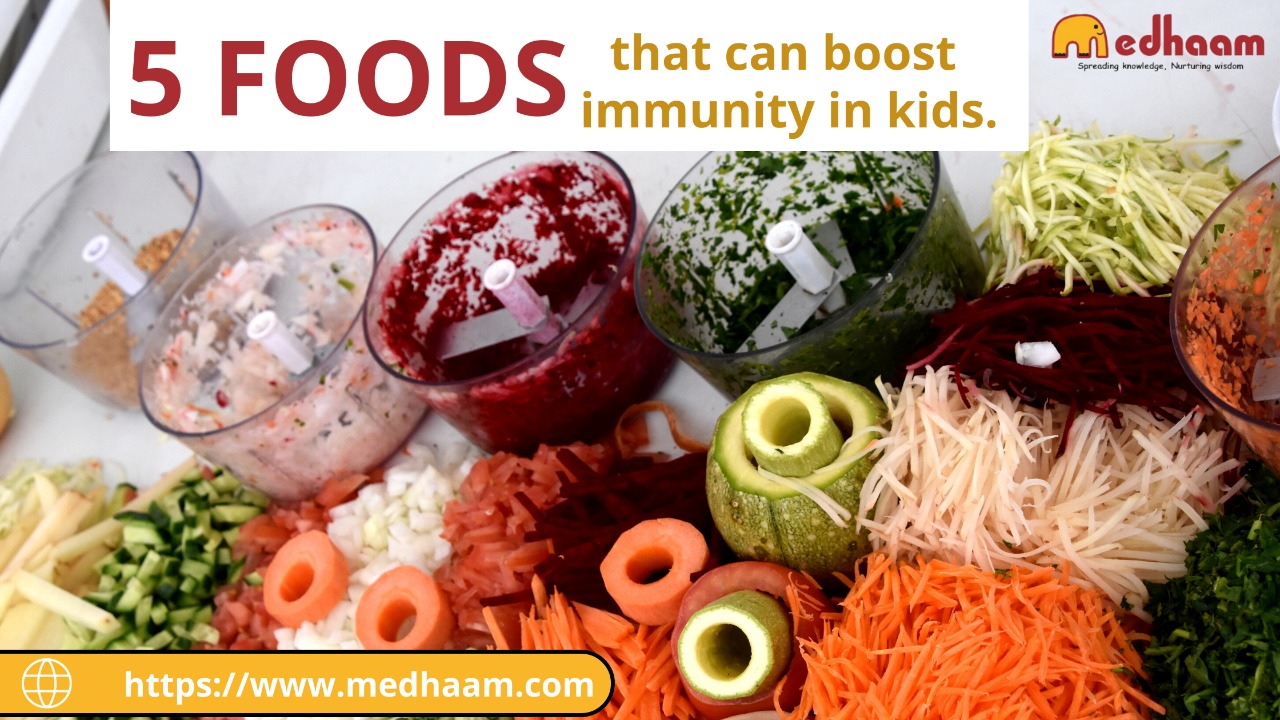5 Foods That Can Boost Immunity in Kids
During the COVID era, the word "immunity" was all the rage. And marketers have taken full advantage of it. 'Immune boosting' claims have appeared on a variety of items, particularly in the food business. But what does it mean to build immunity?
The immune system is a complex system of cells, tissues, proteins, and organs that work together to protect the body from outside intruders. To work effectively, the entire system must work in harmony. Immunity isn't based on a single bodily component that can be enhanced. We must adopt a healthy lifestyle in order to build and sustain the immune system as a whole. Your overall health will improve from a healthy diet, ample sleep, frequent exercise, and reduced mental stress.
After birth, children's immune systems begin to develop. As a child becomes more exposed to the world, including new people, locations, foods, climatic conditions, and a variety of bacteria and viruses, his immune system evolves and adapts. A parent may do a lot to help their child establish a healthy immune system during their child's formative years. One of the most important things to do is to develop good eating habits, mostly habits formed during initial schooling like kids'
daycare and kindergarten childcare. Train your child's palate to appreciate meals that come straight from Mother Nature with minimal processing.
Here are five foods that can help you boost your immune system:
1. Fruits and vegetables:
The antioxidants and vitamins in all seasonal fruits and vegetables are extremely high. These food groups are low in calories, but they are high in vitamins A and C, which help to strengthen a child's immune system. Fruits like guava, oranges, papaya, berries, and vegetables like pumpkin, onions, dark green leafy vegetables, and others are the ideal immune-boosters to incorporate into your regular diet.
2. Yogurt
Yogurt strengthens us by boosting immunity. Yogurt has a lot of potential as an anti-infection and protecting agent. Increased yoghurt eating may assist in boosting one's immune system's resilience to infections and other immune-related disorders. This nutritious snack is high in calcium and other elements that support strong and healthy bones. Yogurt may also make your child feel fuller.
3. Protein saves the day
Animal-based proteins are rich in all of the essential amino acids and are needed for immunological cells. Fish, poultry, cheese, eggs, and milk all contain them. Soybeans, rajma, chickpeas, and other grains and legumes provide protein for vegetarians.
4. Nuts
Walnuts and almonds are high in omega-3 fatty acids, which aid in the body's ability to fight illness. In research, omega-3s were observed to reduce the number of respiratory infections in children. Walnuts are simple to add to a snack mix or cereal.
5. Indian spices and condiments
Garlic, ginger, and turmeric, among other Indian condiments and spices, contain antiviral and antibacterial effects. It also acts as an antioxidant and encourages the development of white blood cells in the body. Garlic aids in the prevention of cold and flu symptoms.
How can you fit all of these food groups into your kids’ diet?
The challenge now is how Millennial Moms can incorporate all of these food groups into their everyday diet. Freshly prepared foods and a few healthful packaged foods can help you strike a balance. Make sure your child's major meals are freshly made with ginger, garlic, and turmeric, and include a balanced balance of whole carbs from chapatis or rice, one bowl of protein (dals/pulses/eggs/lean chicken or fish), and seasonal veggies. A nutrition bar (check the food labels - avoid any product with more than 20% added sugar), or a packed fruit smoothie or yoghurt that can supply daily requirements of immunity-boosting vitamins like vitamin C, can be used as school snacks or pre- and post-playtime snacks. The simplest and healthiest snack is usually a handful of mixed nuts.
